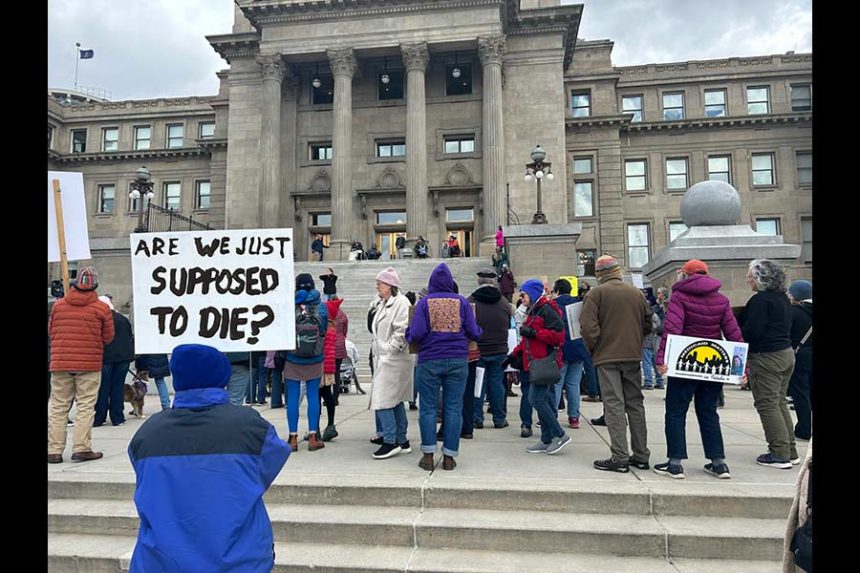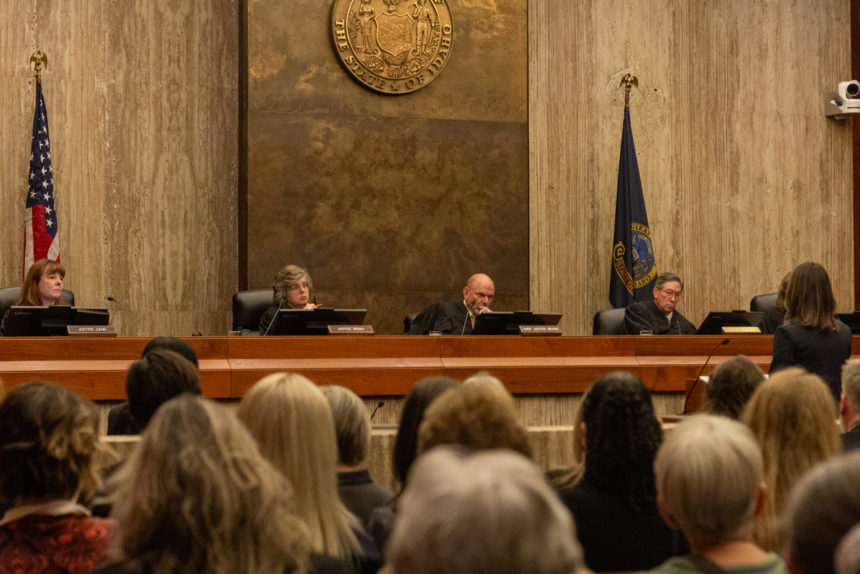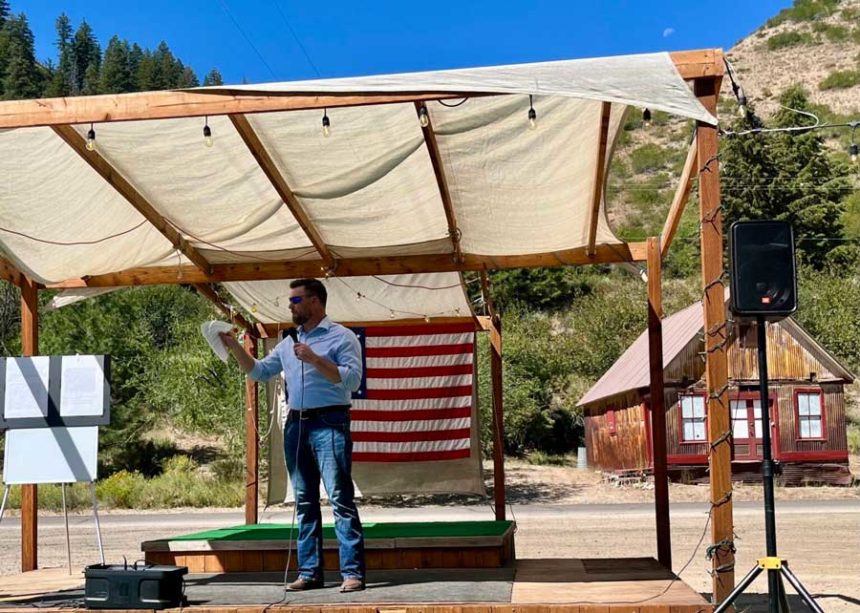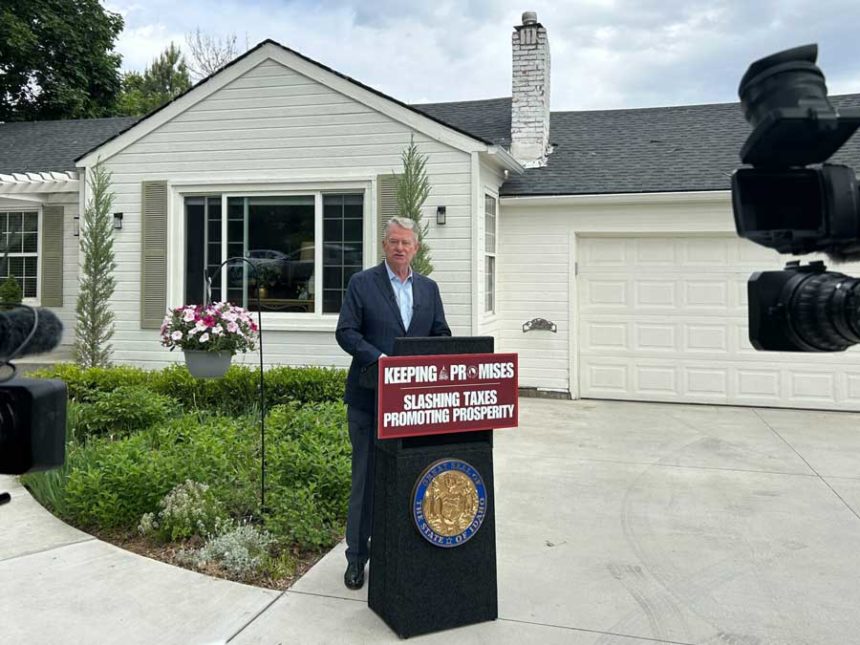BOISE (Capital Sun of Idaho) According to preliminary estimates, the comprehensive budget reconciliation plan passed by Congress on Thursday could result in the loss of Medicaid coverage for almost 40,000 Idahoans and the loss of health insurance for an additional 35,000 people through the state marketplace.
The bill received support from two senators, two members of the House, and Idaho’s Republican congressional delegation.
Health care advocates contest U.S. Sen. Mike Crapo’s claim on the Senate floor Sunday that the measure was eliminating waste, fraud, and abuse in federal spending programs like Medicaid.
According to the Idaho Press, Idaho’s House representatives backed both the Senate’s revised version of the measure, which included an additional $100 billion in Medicaid cuts over a ten-year period, and an earlier House version of the bill.
The House adopted the Senate version’s amendments on Thursday, and President Donald Trump will sign them. The Senate cleared the version on Tuesday.
The Senate version cuts nearly $1 trillion from Medicaid over 10 years
According to a preliminary assessment by the Congressional Budget Office, the Senate version of the budget and tax cut measure is projected to raise the number of Americans without health insurance by 11.8 million over the next ten years and reduce federal spending on Medicaid by almost $1 trillion.
The advocacy group Idaho Voices for Children’s outreach and engagement coordinator, Erin Riley, stated that the health care decrease projections are conservative and that many of the coverage losses would result from more paperwork as a result of the bill’s additional requirements.
According to Riley, there is a lot of paperwork involved, but generally speaking, we may see people losing their Medicaid coverage due to eligibility. Death by a thousand cuts. Therefore, those who would most likely qualify for traditional Medicaid may become caught in the loop of being unable to disclose their eligibility. There is simply a great deal of red tape.
Able-bodied adults would have to work or engage in employment-related activities for at least 80 hours per week under the law, and they would have to demonstrate their eligibility and compliance every six months. Parents of children under the age of fourteen would be exempt.
Those who are insured through Medicaid expansion, a program approved by voters in 2018 to extend Medicaid eligibility to those who earned too much to qualify for traditional coverage but not enough to qualify for the premium tax credit to obtain health care coverage through the state marketplace, are also subject to Idaho’s own work requirement with House Bill 345.
Before the state’s Medicaid modifications take effect, federal authorities must approve them.
Sen. Crapo says bill protects Medicaid coverage for those it was intended for
According to critics and some experts, the comprehensive package maintains tax cuts that were granted in 2017 during the first Trump administration and primarily benefit the wealthiest. Among other provisions, the bill cuts funding for some public assistance programs, including Medicaid and food assistance through the Supplemental Nutrition Assistance Program, or SNAP, and increases funding for the military and immigration enforcement. It also terminates renewable energy programs that the Biden administration had approved.
The bill would protect benefits for which Medicaid was designed, such as pregnant women, children, the elderly, and people with disabilities, according to Crapo, the chairman of the Senate Finance Committee. However, Crapo left out low-income residents, who became eligible after states were allowed to expand Medicaid after the Affordable Care Act was passed.
Programs that recruit undocumented residents and healthy Americans, he claimed, have been increasing the program’s expenses.
Crapo stated on the floor that this rate of growth is unsustainable and jeopardizes the program’s sustainability.
In a news statement, the office of U.S. Senator Jim Risch stated that one of the accomplishments of the package he supported was the preservation of Medicaid for Americans in need by implementing sensible changes that give priority to those who require treatment.
Regarding the Medicaid section of the budget measure, Rep. Mike Simpson’s office was not immediately available for comment. However, in an emailed statement, the office stated that the bill is the America-First policy agenda that Idahoans and Americans throughout the country voted for in November.
Additionally, it was not immediately possible to contact the office of U.S. Representative Russ Fulcher for comment. According to a news release, he voted Thursday to strengthen border and military resources to protect our communities and to enact what would essentially be the biggest tax cut in American history for the American people.
Lauren Necochea, the chair of the Idaho Democratic Party, harshly denounced the congressmen’s votes in a statement.
Hard labor should result in a home over your head, food on the table, reliable healthcare, and an equal opportunity for your children, according to Idaho Democrats. She claimed that Russ Fulcher and Mike Simpson had just voted to destroy that. They supported a Republican budget that catered to billionaires with penthouses and private planes while further eroding the American Dream for working people.
Senate version of bill does not extend health care premium tax credit
The enhanced premium tax credits, which were approved by Congress through the American Rescue Plan Act to lower health care rates through the marketplace created by the Affordable Care Act, are not extended by the funding measure. According to Riley, many people’s premiums would increase if Congress did not renew the improved credits, which are set to expire this year.
According to the health care reform group KFF, the tax credits have lowered premium payments by $705 year on average.
For some groups, increases might be more substantial.
An Idaho couple in their 60s earning $82,000 annually would see their yearly premiums go from $6,970 to almost $22,222, according to an estimate by Idaho Voices for Children.
“We’re going to see people drop off because they just can’t afford coverage because of that high premium cost,” Riley said.












